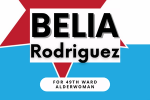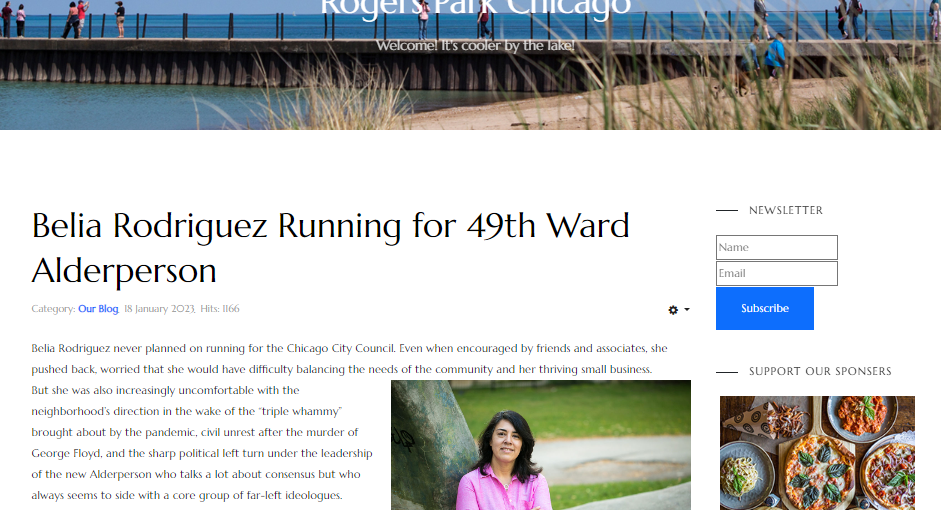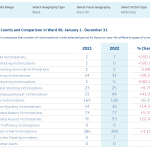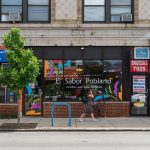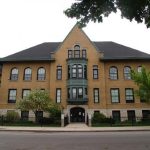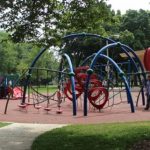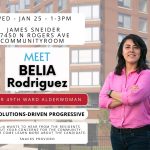Chicago Tribune Questionnaire
Chicago Tribune Questionnaire
Read it on The Tribune.
To inform voters and to help the Chicago Tribune Editorial Board make endorsements, the board posed a series of questions to the candidates running for alderman. See their answers below. See how other candidates answered here.
Name: Belia Rodriguez
Ward: 49th
Current job: Self Employed IT Consultant
Previous political experience: I do not have a political background. I resigned from my second term as President of the Rogers Park Business Alliance to run. I spent 6 years, and hundreds of hours volunteering to improve our community.
Education: CPS Public schools and UIC
Spouse’s occupation: Curriculum developer for K-12, educational publishing.
Sources of outside income: We are both self-employed.
The rise in violent crime remains a top priority for City Hall. Homicides, shootings and carjackings are all unacceptably high. Tell us how city government can be innovative in combating crime, and explain what measures you would propose if elected.
There are various organizations working in Chicago that are focused on innovative solutions to gun violence reduction that are not publicly funded, yet their work has been proven to be effective. The city should invest in the work of organizations like Chicago CRED, READI, Institute for Nonviolence Chicago, and work closely with the crime lab at the University of Chicago. We know that crimes are committed by a small fraction of people, and we have a bounty of technology that we can be using to help us. Northwestern is doing amazing work through the help of artificial intelligence and data scientists. If elected, I would work to secure public funding for organizations with a proven track record in gun violence reduction and implement policies that would prioritize the most at-risk communities across the city.
It is also imperative that we provide additional resources and support for local law enforcement. This includes advocating at the city level to provide adequate staffing for police districts and demanding that the city provide qualified new police officers, ensuring that budgeting is in place to provide adequate resources, and installing additional cameras to aid officers with video evidence.
The CTA, one of the nation’s largest transit systems, remains a troubled agency grappling with issues ranging from violent crime and ghost buses and trains, to flagging ridership. Give us your thoughts on what specific measures CTA should take to make train and bus service safer, more reliable and more equitable for Chicagoans.
We need to provide more security on the trains, including more cameras and more officers. Because it is known that there is not much vigilance on the trains, this makes the train cars and CTA stations ripe for crimes and fast exits. Once CPD is able to put more deterrents in place, the trains will become more secure, and we will see increased ridership. More witnesses always reduces crimes.
Ten years ago, enrollment at Chicago Public Schools was 403,000 students. In September, enrollment stood at 322,000 students. Enrollment at CPS has dropped for 11 consecutive years. What specific measures should CPS undertake to reverse the trend of ever-dwindling enrollment?
The falling enrollment at CPS schools is in line with the reduction of population in the city. As crime rises in neighborhoods, or neighborhoods become more expensive, families make tough decisions to move to areas with better schools or more affordable housing. We need to look at the problems from a high-level understanding that overlapping conditions in the city tend to have a ripple effect. Currently, our teachers are doing the best they can to support our students with the resources they have. We need to ensure that our schools have the funding and resources they need to provide our students with a quality public education. CPS’s decision to implement the Curriculum Equity Initiative was a wonderful step in ensuring that our students have equitable access to high-quality resources and meaningful, relatable content. We need to continue to make wise investments in our students and make sure our neighborhoods are safe and affordable for our families, or we risk losing them to more affordable suburbs or states.
Disinvestment on the South and West sides is a decades-long problem with myriad causes. Give us at least one innovative idea that you believe could play a role in reversing South and West side disinvestment, and explain why the idea is realistic and feasible.
Unfortunately, in some of these areas we have let properties deteriorate, or worse, we bulldozed them down and created empty lots. We will never have the economics of yesterday to allow us to rebuild what we tore down, and today’s costs can seem insurmountable. Yet it can present opportunities for job creation. We learned during the pandemic that we need to manufacture here in the US. We have space to build factories. We have space to establish controlled environment agriculture. We can be training the workers we need in the future instead of letting lots remain vacant.
Do you support giving Chicagoans property tax relief? If yes, please explain how you would accomplish it. If no, please explain why not.
We need to assess how we tax properties and how we are taxing our residents. Providing tax relief is a band aid solution to a problem our government created. We seemed to have moved to a market rate valuation from our previous method. The goal was to correct the imbalance and increase the taxes on commercial properties. Instead, we hit the communities who could least afford it, increasing the risk of gentrification. People of color already make less income and therefore have less tolerance for these unplanned increases. These same neighborhoods and demographics are also the same households that our CPS students come from, so if we are pricing out those families, we will see a bigger decrease in CPS enrollment. We need to step back and evaluate what caused the imbalance and correct that, in order to create a more permanent solution, rather than offer band aid resolutions or potentially forgivable loans.
Give us your take on the city’s use of tax increment financing districts. Do you feel they have been useful, or do you feel that the problems associated with them outweigh their usefulness? What if any reforms would you want to apply to the city’s usage of TIFs?
We have seen benefits in Rogers Park from TIFs. If the TIFs are designed based on comprehensive studies and are focused on addressing the long-term problems in the neighborhoods they’re established, TIFs can help. Yet, if we think only in the short-term and make decisions based on the immediate problems we are trying to address, or if we try to shoehorn in specific developments, the risk is there that the TIF will backfire and waste taxpayer dollars.
Lead in drinking water is a major health concern for the city. It is estimated that in Chicago there are roughly 400,000 homes and small apartment buildings with lead service lines. So far, the city has replaced less than 300 lead service lines. Do you feel the pace of lead service line replacement should be expedited, and if yes, what is the best, most feasible way to accomplish that?
Lead is extremely toxic. I remember reading years back how the lead toxicity from using leaded gas in cars was causing an increase in crime and violence at the time. Exposure to lead in our homes is highly problematic and it is an issue that we need to address sooner, rather than later. There is no cure for lead exposure. The time is now to establish timeframes on making the necessary line items in the budget and a timeline to begin an extensive replacement or repair schedule.
If you are an incumbent, please explain what is it about your service on the City Council that makes you most qualified for the job. If you have never served on the council, please explain what is it about your background that makes you most qualified.
Not answered.
What is the most pressing issue facing the people of your ward, and how would you address it?
Like many neighborhoods in the city, community safety is the leading concern for the majority of ward residents. Violent and non-violent crimes have increased dramatically in the last four years. The 24th District Police are understaffed. Officers have told me that they need more qualified recruits. They need support. Providing our police the support they need to see a reduction in crime and violence in our community is crucial.
The safety factor of a neighborhood impacts other areas of struggle for us. Families move out of high crime areas and the schools lose students. Businesses get tired of being broken into. Residents are tired of falling asleep to gunfire and sirens and waking up to missing catalytic converters and signs of vandalism. Property values are starting to drop and residents who can afford to move are leaving the neighborhood at an accelerated pace. If we want to grow Rogers Park, we need to make our neighborhood safer. We need to prioritize an action plan toward solutions.
Employ long-term solutions to reduce gun violence, including trauma treatment, street outreach, workforce development, and collaboration with organizations, such as Chicago CRED, READI, Institute for Nonviolence Chicago, Northwestern/Andrew Papachristos, and University of Chicago Crime Lab.
Invest in new technologies and strategies in violence prevention, including engaging data teams to assist in the 49th Ward to identify individuals with the highest risk factors. We can monitor social media interactions to give us insight as to when there is potential for another shooting and intervene. This level of work can also assist our police in making arrests.
Establish safety task forces in each area of Rogers Park to meet regularly. Teams will consist of local partners and connect with CAPs teams, with regular communication between groups and the CPD. Engage and assist our local violence interrupters and establish better communication between those engaged in street outreach to ensure groups are working toward common goals.
Lobby city and state for funding toward best practices in violence reduction. This includes advocating for the allocation of available resources to fund violence reduction programs. Improve relationship with 24th District Police. This includes developing a relationship built on mutual respect, establishing monthly meetings with Commander Brennan, and maintaining an open line of communication with police.
Provide additional resources and support for local law enforcement. This includes advocating at the city level to provide adequate staffing for the 24th District, demanding that the city provide qualified new police officers, ensuring that budgeting is in place to provide adequate resources, and installing additional cameras to aid officers with video evidence.
Increase support to local businesses and residents. This includes implementing plans and providing security to prevent break-ins and robberies, developing educational materials for local businesses, encouraging local businesses to install more cameras and provide access to city law enforcement to aid police in searches, and finding resources to help businesses with associated expenses.
Increase support to property owners. This includes encouraging the installation of more cameras and motion lights outdoors and in common areas, encouraging more safety updates and communication to tenants via newsletters, portals, and flyers, and establishing a dedicated line of communication between property owners and the ward office to ensure sharing of vital information and visibility.
Increase public awareness and information accessibility. This includes maintaining readily accessible information for crime on the ward site, encouraging the sharing of helpful information to local police or ward office, educating the public on the importance of cameras, motion detectors and other instruments of deterrence, extending rebate support from the city for reimbursement of residential security equipment.
Hold law enforcement accountable. This includes advocating for equitable treatment of people who are apprehended and setting expectations for officers to act honorably and professionally and speak out if Chicagoans are not treated respectfully.
Demand that our mayor and district attorney are acting responsibly to protect our citizens, property owners, and businesses. Government has a prioritized responsibility to ensure safety in our city and wards.
There are no magic pills we can take to solve the systemic issues that have been at the root of the violence problems in Chicago. However, we can take advantage of the various studies and proven programs to mitigate gun violence and other crimes that are making our community less safe.
Sum up why should voters elect you and not your opponent(s)? (Please limit this to policy and approach, not a biography recitation.)
I believe in working together to find solutions. My focus is strengthening partnerships, building alliances, finding common ground, and making decisions that serve the whole community. I want to work with members of the community to develop actionable plans that we can include in the city’s budget plans. The best defense against gentrification is to ensure our existing businesses thrive. If we make a stronger local economy, we make it more attractive for others who appreciate our diversity. If we bring in more customers, our businesses will thrive. If we can show we are a growing neighborhood, we can attract developers who will build more affordable housing right here in Rogers Park. We can do this working together, together in our community, and together with other wards and the mayor.
